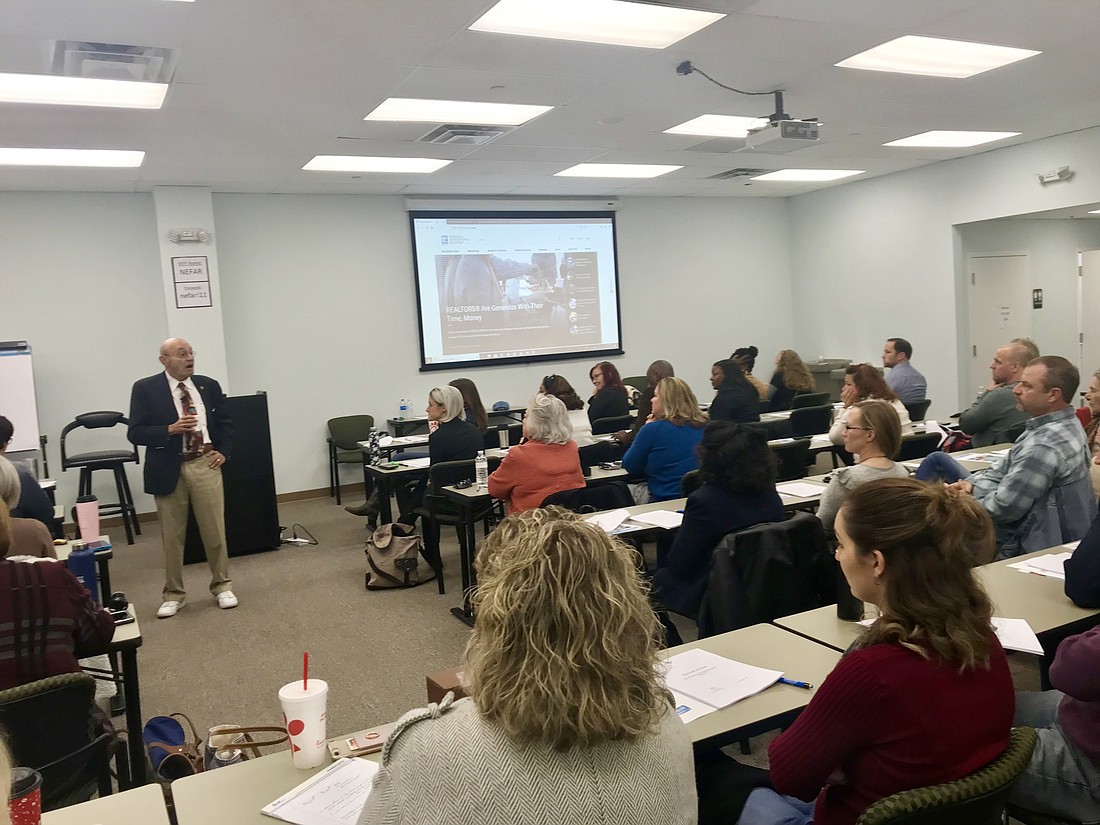
If real estate agents are hoping to keep their jobs and keep money in their wallets, they may want to listen to Chuck Bonamer.
A group of Northeast Florida Realtors recently discovered some tips at an ethics course that could affect their income and profession.
Every licensed Realtor is required to take the course every two years.
Bonamer, their instructor, mentioned a rule that shocked many of the agents.
He shared a scenario of a customer seeking a new Realtor after not liking the first one but still purchasing a home shown by the first agent.
Bonamer said the commission needed to be handed over to the first Realtor, despite the fact the second agent took over and completed the paperwork.
A few agents attending the three-hour continuing education course said the rule didn't seem fair.
Bonamer, a Venice-based author of a real estate management series, said the policy may not seem just, but his goal is to help agents avoid legal pitfalls that can end up costing them money or even their jobs.
“If you look at the money first, that's not the right thing to do,” he said. “You have an obligation to be honest with all parties at all times. Otherwise, you could be liable,” said Bonamer.
For example, he told a story about a Realtor who was asked by a prospective buyer about the condition of a home's roof. The agent responded that it “looked like it was in good shape.”
After the person bought the house and discovered the roof was in terrible shape, the agent had to pay for the repairs.
Instead of giving an opinion on a property's condition, Bonamer used humor to make his point.
“You have to say it appears to be a roof,” he said. “Tell them you don't want a Realtor's opinion, but a contractor's (opinion).”
Bonamer said Realtors need to be cautious not only about what they tell customers, but also what they put in writing.
He said he had to buy a new riding lawn mower for a customer because he listed that one was included with the house. When the seller moved and took the mower, leaving an old one, Bonamer legally was bound to pay for a new one.
In addition to teaching dozens of real estate courses every year, Bonamer is the president of Trans-Equity Inc., a brokerage firm that provides litigation support and lecture services to the brokerage and legal industries, according to the company's website.
He is a past president of the Florida Real Estate Education Association, chaired the Professional Standards Committee and won the Top Instructor Award from the National Association of Realtors.
“I'm not an attorney, I only train them,” Bonamer said. “I want to make sure you're protecting yourself.”
Another topic was that Realtors should not alter photographs taken of properties they sell because “warts” that are hidden by fixing an image in Photoshop also can result in a loss of income or career if an owner decides to sue.
Bonamer said all items inside a property should be inventoried and documented if they are included with the sale. It might be time-consuming to count every piece of silverware inside a drawer, but not doing so could lead to that agent paying for a full set.
While the information may have surprised some agents, it could be the difference in remaining employed or not.
@Jay_Schlichter
(904) 356-2466